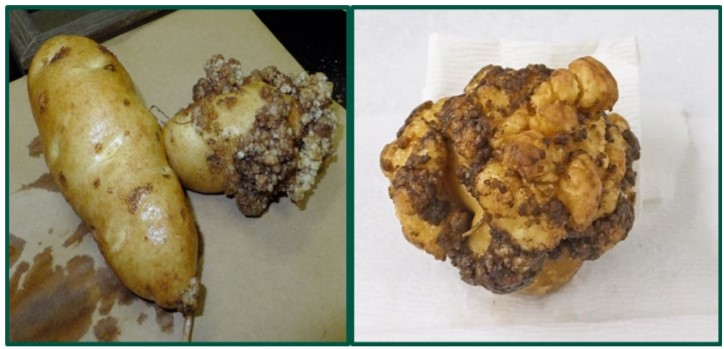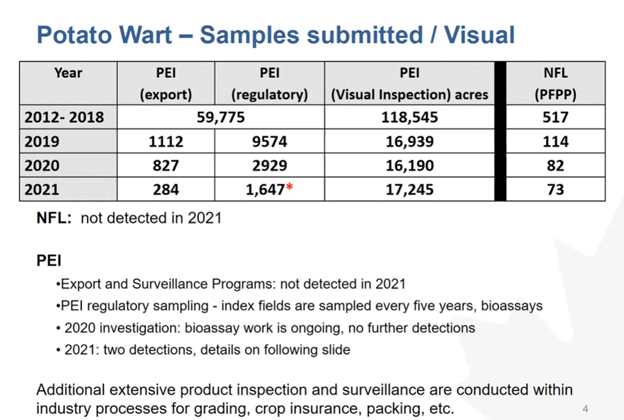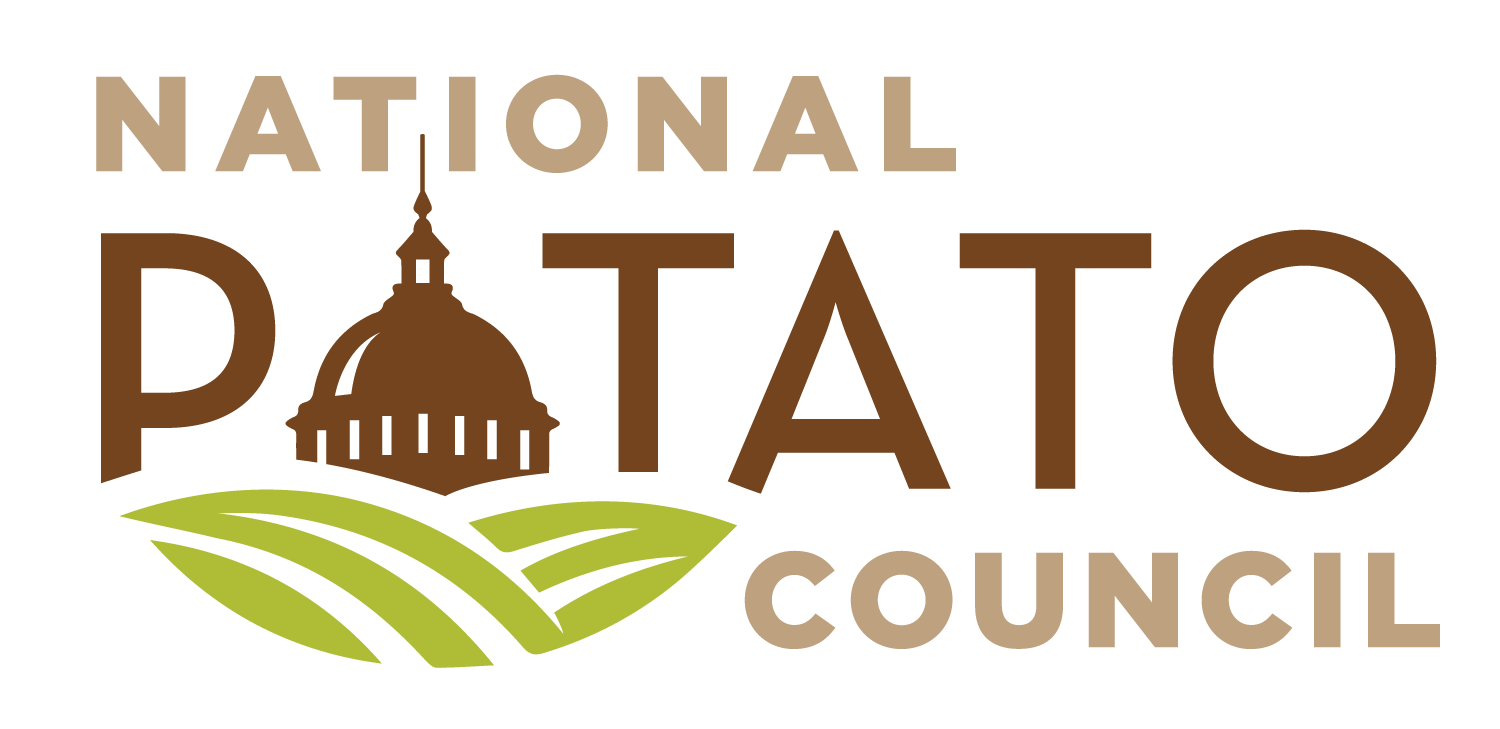Spread into U.S. would cost the industry over $225 million in annual sales

In light of the multiple potato wart finds on Canada’s Prince Edward Island (PEI), during a meeting of the Potato Association of America on December 1, 2021, the Canadian Food Inspection Agency (CFIA) provided growers and industry partners an update on its soil sampling efforts throughout the province’s potato production area. The CFIA data demonstrated a clear and troubling reduction in sampling, leaving the industries on both sides of the border with uncertainties about the spread of the disease on PEI.
Reduction in Soil Testing for Potato Wart
CFIA reported the following data that indicates the soil testing program on PEI has declined substantially in the past five years. Soil sampling is the most effective method of determining where the disease has spread.

Total Soil Tests (Export plus regulatory)
| Year | Soil Samples |
| 2012-2018 | 8,538 per year average (59,775 total/7 years) |
| 2019 | 10,686 |
| 2020 | 3,756 |
| 2021 | 1,931 |
CFIA’s data indicates the following reductions in soil sampling over the various time periods:
Change between 2019 and 2020 – 65% reduction
Change between 2020 and 2021 – 49% reduction
Change between 2019 and 2021 – 81% reduction
Change between 2012/2018 average and 2021 – 78% reduction
The National Potato Council (NPC) and grower organizations throughout the United States have welcomed the decision by CFIA to restrict the movement of PEI potatoes to other Canadian provinces and the United States in order to prevent the spread of potato wart. The transmission of potato wart beyond PEI would have a devastating impact on North American potato growers and industry partners from both nations. The U.S. potato industry alone would likely lose access to all international fresh potato markets, costing the industry over $225 million in annual sales, should wart be spread beyond PEI and into the United States.
In an interview with POLITICO, U.S. Agriculture Secretary Tom Vilsack said trade restrictions will be relaxed when the CFIA can demonstrate work to “delimit the infestation and trace the sources so that appropriate mitigation measures can be imposed.”
“We’re asking the CFIA to redouble their efforts in terms of getting all that work and evidence and scientific work through the CFIA to the USDA,” Secretary Vilsack told POLITICO. “It’s not going to happen overnight.”
NPC appreciates the steadfast support of Secretary Vilsack and the entire USDA Animal and Plant Health Inspection Service (APHIS) team in addressing this virulent disease. The U.S. industry will continue to work with APHIS, CFIA, and our partners in the Canadian potato industry to ensure that transparent, science-based measures are installed to mitigate disease risk and productively address trade between the two countries.

